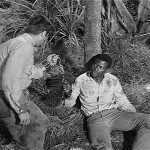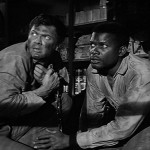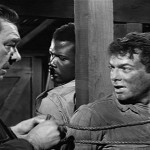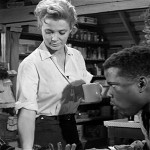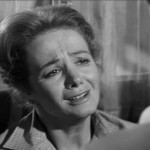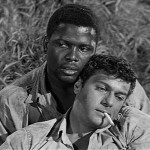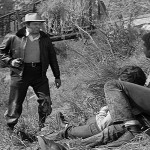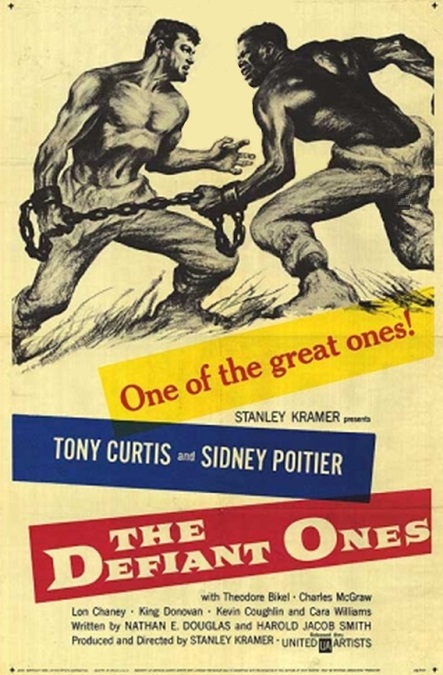
The Defiant Ones – 1958
This film was not bad. It wasn’t great, but it wasn’t bad. Tony Curtis and Sidney Poitier, play the leads, John “Joker” Jackson and Noah Cullen, two convicts who have escaped from a chain gang, chained together at the wrists. They run from Sheriff Max Muller, played the Theodore Bikel, and his deputized band of locals, trying to make their way out of the South. They face many challenges like crossing rivers, evading blood hounds, and getting over their own prejudices toward each other. The fact that the two men are chained together forces them to work together to survive.
The film’s main issue, of course, was racism, and it made a point of the fact that racism is nine-tenths ignorance. Getting to know the object of your prejudice leads to understanding and friendship. The plot was told in a very focused and singular way. There were very few subplots and only one or two characters that were not necessary to advance the film’s anti-racism agenda.
For example, there was a character, played by Carl “Alfalfa” Switzer. He was annoying and unnecessary. He was part of the hick posse chasing after the convicts. He carried a transistor radio around his neck and had it tuned in to 50s style rock-and-roll music. He annoyed the police he was with and annoyed me at the same time. He was constantly breaking the dramatic tension in the film and I wanted the Sheriff to take the radio and smash it to pieces. Unfortunately, that never happened.
The acting was very good, Curtis and Poitier turned in some deep and insightful performances. Curtis starts out as an angry and aggressive character who wants to live a life of wealth and ease. There are moments in the film in which he really gets to show off his skill as a dramatic actor. Poitier was just as good. Cullen just wants to live in a world where he is free, not only from his physical chains, but also from the unfair and oppressive bonds of his race. Eventually, the two learn to trust each other and find that a friendship has formed while they aren’t looking.
The film had only one female character whose name was never given. The escaped cons find a young boy in a field who they capture, and they force him to take them to his home where their chains are removed. There, they meet the boy’s mother, played by Cara Williams. Here is a lady who is so messed up, she is desperate to go on the lamb with Joker just to appease her own loneliness. She is aware that he is a criminal, but for him, she is willing to leave her son with relatives, give him her entire life savings of $400.00, and move to a big city where he can avoid capture.
Williams did a good job, and while her role might seem superfluous, she actually served several functions. She was extremely prejudice towards black people. In an effort to get Joker to stay with her, she tells Cullen how to get to the train tracks. She directs him to go through the swamp. What she lets slip to Joker after Cullen leaves, is that Cullen will never make it through the dangerous swamp alive.
This gives Joker the opportunity to realize just how much Cullen has come to mean to him. He discovers that he has made a friend who he cannot abandon to his death. He leaves the woman and runs off to save his friend, knowing that it might just cost him his own life in the process. Oh, and the boy shoots him in the shoulder as he runs off.
Every little scene had its purpose. There was nothing extraneous, nothing unnecessary. Every conversation, every line of dialogue, every bit of action, and every character were there for a very specific reason: to expose racism and offer a solution. The film ended when the two were caught. The Sheriff stands in front of them when they can run no more. The end. Literally. No final thoughts, no moral statements. The two men have overcome their natural prejudices. Roll credits!
But apparently, the entire plot can be debunked with one little tidbit of fact that I found in my research, and it sounds to me to be absolutely plausible. The story could never have actually taken place. In the 1950s, segregation was still a prevalent and common problem. In the South, a black man would never have been chained to a white man. The whole premise of the plot is based on a falsehood. But no matter. It still made for an entertaining film.
